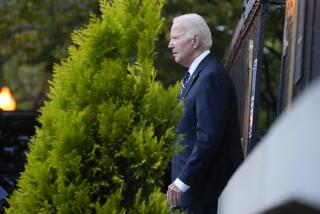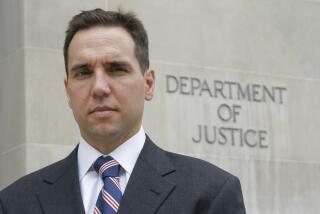IRAN-CONTRA WATCH : Say What?
- Share via
Lawrence E. Walsh, the special counsel in the Iran-Contra investigation, is preparing to close up shop after nearly six years on the job with, he says, further prosecutions unlikely. But while the official investigation draws to a close, questions arising from the scandal remain open.
Only in the last few weeks has a State Department memorandum come to light that indicates President Bush may have been less than candid when, as Ronald Reagan’s vice president, he denied knowing that then-Secretary of State George P. Shultz and Defense Secretary Caspar W. Weinberger strongly opposed the scheme to secretly sell weapons to Iran and use the profits to finance rebel forces in Nicaragua.
Bush’s assertion of that ignorance in a 1987 interview prompted an angry call from Weinberger to Shultz, producing a Shultz-dictated memo that has been retrieved from State Department files. “(Bush) in papers yest(erday) (said) he not exposed to Cap (Weinberger) or my arguments on Iran arms. Cap called me (and said) that’s terrible. He (Bush) was on the other side. It’s on the record. Why did he say that.”
Bush has never denied going along with the arms sales. But he has clearly indicated that he might have withheld his support had he known that the two senior Cabinet officers were strongly opposed. The memo on the Weinberger-Shultz conversation makes it pretty clear that Bush in fact had been exposed to these dissenting views. A serious credibility issue has thus been raised that Bush must clearly address.
More to Read
Sign up for Essential California
The most important California stories and recommendations in your inbox every morning.
You may occasionally receive promotional content from the Los Angeles Times.













